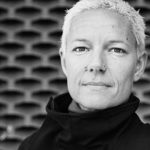Preventing Violence Against Women: An Interview With Our Watch CEO Patty Kinnersly

Ten women have been killed violently in Australia so far this month. And according to Destroy the Joint’s Counting the Dead Women Australia project, that brings the total number of women murdered nationwide due to violence against women this year to 57.
A 36-year-old mother-of-two was murdered outside a shopping centre in the Adelaide suburb of Noarlunga Centre just after midnight on Thursday. Police have arrested a 20-year-old man with no fixed address. And an officer said robbery is not thought to be a motive for the attack.
The body of 24-year-old Cairns pharmacy worker Toyah Cordingley was found at Wangetti Beach on Monday, after her family had reported her missing. Her killer is yet to be found. And police say they’re following up fifty possible leads.
There’s a very real epidemic of violence against women in the community. And many are asking why more isn’t being done about it. If 57 deaths over the past year were attributable to terrorist or criminal networks, it’s sure the government would be escalating its response.
However, when it comes to violence against women the impetus doesn’t appear to be there. And what’s more, often the media focus isn’t either. The murder of Eurydice Dixon in June deservedly gained national attention. But, many of the other women whose lives were taken failed to gain similar notice.
Gender Inequality
Our Watch is the nation’s national body for the prevention of violence against women and their children. The organisation was established five years ago with the aim of driving change in “the culture, behaviours and power imbalances” that lead to such violence.
The not-for-profit recognises that the primary driver behind this violence which is so pervasive within the community is gender inequality. And this imbalance of power, resources and opportunities is having devastating effects.
One woman is murdered a week, on average, in Australia by her current or former partner. One in three women over the age of 15 in this country has experienced physical violence. And one in every five Australian women has experience sexual violence.
Effecting change
Our Watch runs projects aimed at countering gender inequality in the community. And last week, it launched the Doing Nothing Does Harm campaign, which is an online initiative designed to provide the skills in dealing with situations where women are being disrespected.
The campaign comprises of a series of short online interactive videos that prompt the viewer to do something in everyday situations where disrespecting women seems to go unchecked. It prompts people to speak up during these uncomfortable situations rather than remaining silent.
Sydney Criminal Lawyers® spoke to Our Watch CEO Patty Kinnersly about the prevalence of violence against women in Australia, the federal government’s action plans aimed at preventing this violence and how she sees meaningful change will be brought about in the long run.
Firstly, ten women have been killed violently in Australia this month alone. And this brings the total number of women murdered nationally due to violence against women this year to 57.
Ms Kinnersly, what do these statistics tell us about the state of Australian society at present?
We know that violence against women is a national crisis. Women and children in our community are at genuine risk and we need to act.
Over the last month, ten more women have been killed in Australia. This brings the 2018 toll to 57, an increasingly familiar, but no less brutal, reminder of how urgent this work is.
There has been a real and positive shift in the attitudes towards violence against women and a genuine will in the community to change the attitudes and behaviours that lead to this unacceptable violence.
But, change is a whole of community responsibility and it will take time.
At Our Watch, we know that addressing the drivers of violence against women is a community-wide responsibility and it can only be done by changing social norms and structures, attitudes and behaviours across a broad range of settings.
You’re the chief executive officer of the national organisation dedicated to the prevention of violence against women and their children.
In your opinion, why is this sort of violence so prolific in Australia? What’s driving the epidemic of violence against women?
All violence against women starts with inequality. In a more equal, respectful society, we would not see these unacceptable attitudes and behaviours.
When a man kills his partner, the primary issue is not gun control, family circumstances, drugs and alcohol, stress or disadvantage, it is violence against a woman, and gender inequality is the key driver of this kind of violence.
We know, from extensive, credible research in Australia and overseas that the drivers of violence against women are clear.
The drivers are: condoning or accepting such violence, men’s control of decision-making and limits to women’s independence, disrespect towards women, male peer relationships that emphasise aggression and rigid stereotypes about masculinity and femininity.
Over recent years, national awareness of domestic and family violence has been growing, as well as an understanding of the need for better policies and programs.
Would you say that over this time of rising awareness the national response to violence against women has become more adequate? And have societal values been changing?
There has been a definite and positive shift in attitudes around violence against women in recent times.
In the wake of the #MeToo movement, there is a new and welcome awareness of the extent of harassment and abuse of women, both in the work and home settings.
There is a definite sense that the public conversation has changed. People will no longer accept abuse or harassment, or turn a blind eye to this unacceptable behaviour.
I speak to people in a wide range of organisations and I see overwhelmingly that most people genuinely want to change the workplace culture and attitudes that contribute to harassment and abuse of women.
The Turnbull government announced its Third Action Plan to Reduce Violence Against Women and Their Children in October 2016. It comprised of a $100 million dollar package designed to change attitudes to and tolerance for violence against women.
How effective has the federal government’s action plan been?
The Third Action Plan marked the halfway point of the ground-breaking National Plan to Reduce Violence Against Women and Their Children 2010-2022.
The National Plan is a commitment by governments to address the crisis of violence against women in Australia. It is the result of support from politicians across the political spectrum to tackling this community-wide problem.
Under the Third Action Plan we have seen genuine action by politicians at the state and federal levels, including a commitment to implement Change the Story – the resource developed by Our Watch – as a national shared framework for the primary prevention of violence against women.
This work can only continue with that bi-partisan political support, which is critical as we move into the Fourth – and final – Action Plan. Long-term investment and sustainable funding are required to build on the progress made under the Third Action Plan.
While much has been achieved, a second National Plan – which runs beyond 2022 – will be vital.
Your organisation was established five years ago with the aim of driving “nationwide change in the culture, behaviours and power imbalances that lead to violence against women and their children”.
How would you describe the approach your organisation takes in effecting change?
The underlying goal of Our Watch, as a primary prevention organisation, is stopping violence against women before it starts. We understand that taking action to change the attitudes and behaviours that lead to violence must be a whole of community responsibility.
Our Watch works with schools, young people, sporting codes, governments and businesses to bring about this change.
We are also actively engaged with the media to improve reporting on violence against women, because we understand the vital role that the media plays in influencing the public’s understanding and attitudes towards this issue.
Our Watch is working extensively with a number of major sporting organisations to ensure women and men are equally represented at all levels of their clubs, and that they are empowering players and spokespeople to publicly challenge sexist behaviours and remarks both on and off the field.
Last week, Our Watch launched the Doing Nothing Does Harm campaign, which provides people with the skills to intervene in situations when they turn disrespectful.
What does this new campaign involve? And what other sorts of programs is Our Watch involved in at present?
We are enormously proud of the Doing Nothing Does Harm campaign. It is based on new research that found most people - 79 percent – want to tackle disrespect towards women when they witness it, but few – 14 percent – feel able to speak up and act. It gives some great, practical examples of words and actions that can make a difference.
In a series of short videos, we see scenarios that will be all too familiar to most of us. For example, the man who says women can’t really be CEOs, or makes sleazy comments to the young female waiter.
In the interactive videos, if the viewer chooses to act, they are given options including showing disapproval by not laughing along, supporting the target of the abuse with a comment, or speaking up: telling the person making the disrespectful comments that it’s not funny and it’s not ok.
We’re giving people the everyday tools to push back against this abuse.
Also, this year, Our Watch launched an important campaign to raise awareness of non-physical violence. This campaign was particularly aimed at young adults, making the point that abuse such as stalking, social control, financial abuse and emotional abuse are all forms of violence against women.
As well as our campaigns, we work extensively with sporting codes, the media and educators to tackle the drivers of violence against women.
Recently, we held our national media awards, which reward responsible, informed reporting on violence against women and we are also working on training and guidelines for media reporting on this difficult and complex topic.
We know that change will only come from a whole of community approach and that each piece will play its part in creating change.
And lastly, Ms Kinnersly, how are the necessary changes going to be brought about in the Australian community, so that violence against women becomes something that’s no longer a commonplace occurrence?
Our Watch is committed to stopping violence against women before it starts. We base everything we do on robust research and we take a whole of community approach to addressing the drivers of violence.
I have been working in the field of violence against women for many years and speak to a wide variety of organisations about the need for change and how to achieve this.
The advice I give to workplace leaders is that a commitment to equality must be part of their DNA and should weave into everything they do as an organisation.
I also advise people that it’s vital that we work to create structural change, that means policies, laws and practices that will be there for the next generation.
Stopping violence against women before it starts will be achieved by action on many fronts – legal, social, educational and cultural – and it must take place across many sectors. This is why Our Watch works with sporting groups, schools, universities, young adults and state and federal governments.
The crisis of violence against women is a whole of community problem and working towards a solution is the responsibility of the whole community.







